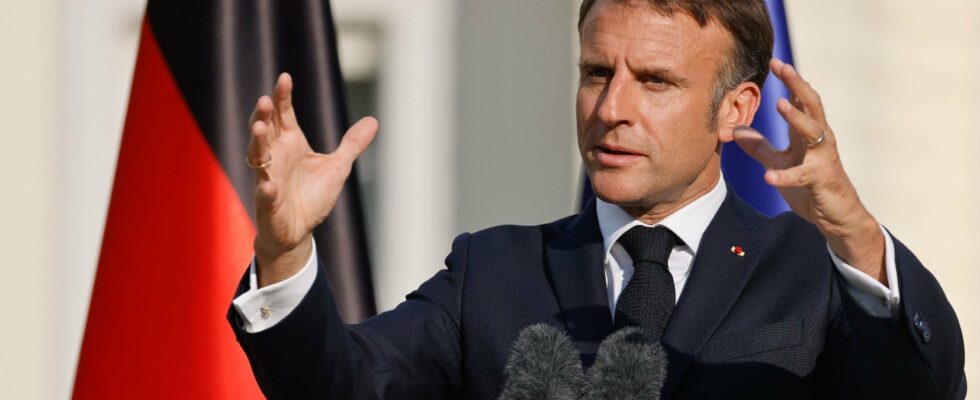It is not the least of the paradoxes that on the evening of the most important European elections in history, the most European of French presidents committed the future of Europe with the least European of decisions. Emmanuel Macron announced the dissolution of the National Assembly without warning his European partners, who are among the first concerned and who will perhaps be the first victims.
At 8 p.m. on June 9, relief still outweighed worry. The national-populist wave had gained ground, but the Europhobic tidal wave had not taken place. France held the record for far-right scores, Germany was not far behind, and the German government of Olaf Scholz also suffered a severe defeat. The new European Parliament nevertheless remained stable, hectic without being upset, still dominated by the coalition of Christian Democrats, Social Democrats and Liberals. From 8:59 p.m. to 9:04 p.m. the same evening, President Macron’s televised speech acted like a bomb. The other results were blown.
In Brussels as in state capitals, concern or anger is expressed behind public politeness. The first polls predict the collapse of the presidential party and a future Assembly that is at best ungovernable, at worst in the hands of the National Rally. Nobody accuses the French president of a rise of the extreme right, the phenomenon of which is common to all of Europe, including the United States. Everyone wants to be understanding towards a “clarification” aimed at mobilizing a republican front in twenty days, or otherwise blocking the entry of the RN to the Elysée by demonstrating its nullity to Matignon. But the Macronian bet of an anticipated dissolution, at the worst time and to which he was in no way forced, is overwhelming.
Existential danger for the EU
In the worst geopolitical context, what was the point of provoking quick elections leaving no time to campaign, instead of fighting for a real German-style coalition as other Europeans have learned to do? How can the leader who was able to impose the project of European sovereignty take the risk of giving the keys to France to a Europhobic and pro-Putin extreme right party and strengthening an extreme left which is no less so? ? How the architect of the great post-Covid loan and the start of a common industrial policy, on the front line to unify Europeans against Putin, to mobilize support for Ukraine and constitute the essential Europe of defense, how Can the dean of the European Union let go in the name of an insane personal bet, at a time of war on the continent and a critical phase of existential danger for the EU? How can the person who insists that “Europe is mortal” play at delivering a fatal blow to it?
In a few days and even before the election results, France has already lost its power in the EU, in the world and on the markets. It conveys the image of an unstable and unpredictable country. Despite the defeat of the Scholz government, Germany is seeing the spread widen, the difference in interest rates with that of France, which increases to its benefit by 0.7% in one week. Emmanuel Macron’s words on the strategic sovereignty of Europe have lost all authority while key moments of support for Ukraine are at stake. The two new masters of the game are two nationalists: the Italian Giorgia Meloni, pro-European and pro-NATO by circumstance, and the Hungarian Viktor Orban, close to Trump and Putin, the friend of the enemies of Europe. In a dark irony of history, the former is currently hosting the G7, and the latter will take over the rotating presidency of the EU in July.
Mortal Europe has taken a step towards the void. A weakened France is weakening its unity, on which the sovereignty of member states and the survival of their democracies depend in a world of great powers and in the face of Putin’s hegemonic imperialism. The presidential roll of the dice in June 2024 is reminiscent of the June 2016 referendum on Brexit: a bet without strategy, an election without campaign, national and European self-destruction. It’s up to us to block the last step.
* Marion Van Renterghem is a senior reporter, winner of the Albert-Londres prize and author of “Piège Nord Stream” (Arènes)
.
